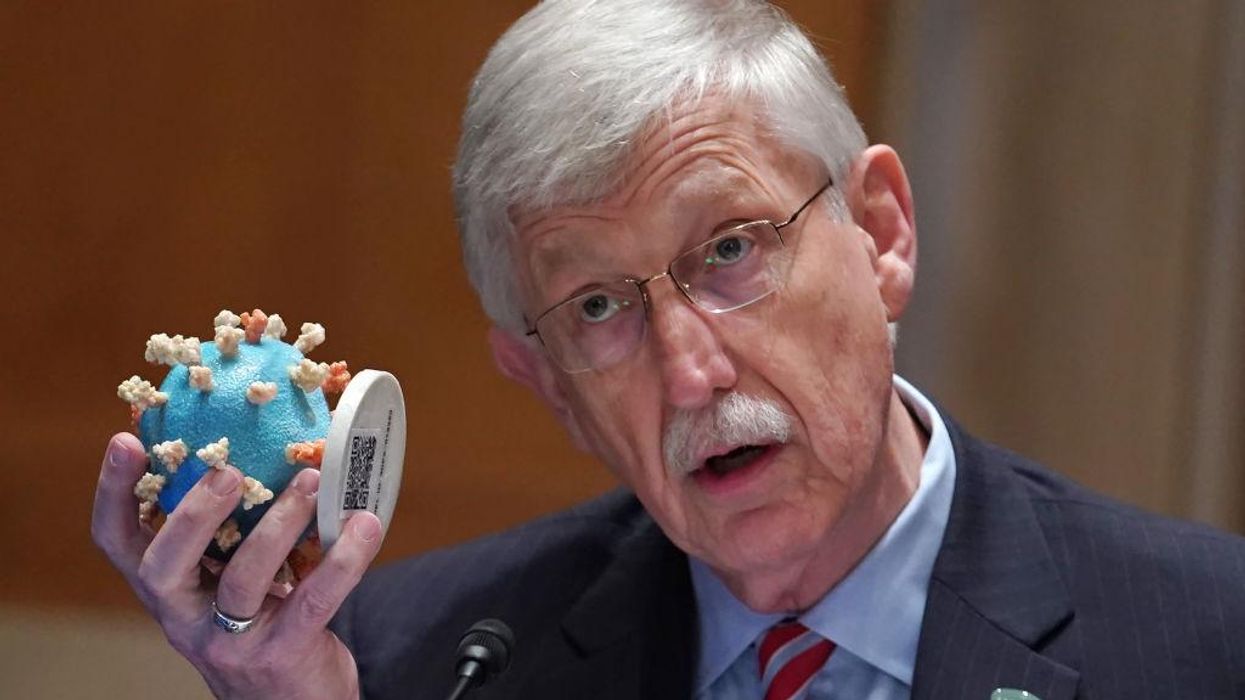
Sarah Silbiger-Pool/Getty Images

National Institutes of Health Director Francis Collins will leave his position before the end of the year, stepping away from nearly three decades of public service, the agency announced Tuesday.
Collins, 71, is the longest-serving NIH director, having served under three consecutive presidents after being appointed to his position by President Barack Obama and confirmed by the U.S. Senate in 2009. He said in a statement that his decision to step down was made in consultation with his family and in accordance with his belief that NIH should have fresh leadership.
"It has been an incredible privilege to lead this great agency for more than a decade," Collins said. "I love this agency and its people so deeply that the decision to step down was a difficult one, done in close counsel with my wife, Diane Baker, and my family. I am proud of all we've accomplished. I fundamentally believe, however, that no single person should serve in the position too long, and that it's time to bring in a new scientist to lead the NIH into the future. I'm most grateful and proud of the NIH staff and the scientific community, whose extraordinary commitment to lifesaving research delivers hope to the American people and the world every day."
Collins' departure was planned for some time, according to Politico, which first reported the story.
Before his appointment to NIH, Collins was the director of the National Human Genome Research Institute from 1993-2008, where he led the international Human Genome Project. In April 2003, under Collins' leadership, the project published the completed sequence of the human DNA instruction book. In 2007, he was awarded the Presidential Medal of Freedom by President George W. Bush for his work mapping the human genome.
A convert from atheism to Christianity, Collins founded BioLogos in 2007, an organization that seeks to demonstrate how scientific knowledge of the world supports the Christian faith.
During his 12 years at NIH, Collins successfully lobbied Congress to increase funding for NIH research, overseeing a budget increase of 38% from $30 billion in 2009 to $41.3 billion in 2021. He worked with the Obama and Trump administrations to establish programs to tackle pressing health issues facing Americans, including Alzheimer's disease, cancer, opioid use disorder, rare diseases and the COVID-19 pandemic.
During the pandemic, Collins has been a leading voice among public health officials urging Americans to wear masks and get vaccinated. He worked with the Trump administration on the Accelerating COVID-19 Therapeutic Interventions and Vaccines public-private partnership to create a coordinated research strategy for the development of COVID-19 treatments and vaccines.
His tenure at the agency is not without controversy. Along with his subordinate Dr. Anthony Fauci, Collins in 2011 wrote an op-ed in the Washington Post defending gain-of-function research, an area of virus study that involves genetically altering pathogens to become transmissible among human beings to study how a virus may evolve in nature. Under Collins' leadership, NIH approved at least two separate grants in 2014 and 2019 for the nonprofit group EcoHealth Alliance to study bat coronaviruses in China. These grants funded gain-of-function research studies, which have been at the center of a hypothesis that COVID-19 originated from a research-related laboratory accident in China.
In a May statement, Collins denied that NIH ever funded gain-of-function research on coronaviruses "that would have increased their transmissibility or lethality for humans."
Whether or not Chinese researchers used NIH funding to conduct such research behind the United States' back remains unknown because China is not being transparent about its role in the origins of the pandemic.
After Collins officially leaves office, President Joe Biden will nominate a new individual to lead NIH and the Senate will be required to confirm Biden's nominee. Questions about COVID-19 pandemic policy, NIH funding for gain-of-function research, and a myriad of other controversial topics are certain to be the subject of scrutinizing questions from lawmakers.